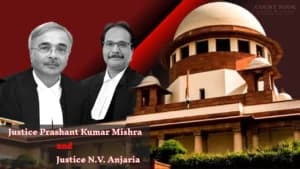The Supreme Court has directed a tree census in the Taj Trapezium Zone (TTZ) to ensure the effective enforcement of the Uttar Pradesh Protection of Trees Act, 1976. The apex court emphasized that without a detailed record of existing trees, the provisions of the Act, including prior permission for felling and penalties for violations, cannot be properly implemented.
A bench comprising Justice Abhay S Oka and Justice N Kotiswar Singh instructed the TTZ Authority to appoint the Forest Research Institute (FRI) as the official body responsible for conducting the survey.
"The provisions cannot be implemented unless the data of existing trees is available. The data can be made available only if the proper tree census is carried out. Without a tree census, there cannot be any effective implementation of the provisions of the 1976 Act," the court stated.
The TTZ Authority has been directed to issue a formal appointment order to FRI within a week. Additionally, the court has asked FRI to submit an affidavit outlining the process and timeline for conducting the survey. If expert assistance is required, FRI may propose names for court approval. The affidavit must be submitted by the end of March 2025. The court has also made it clear that all local authorities, the state government, and TTZ authorities must fully cooperate with FRI to ensure the completion of the tree census.
Read Also:- Central Administrative Tribunal Quashes IRS Officer Sameer Wankhede's Transfer from Mumbai to Chennai
The Supreme Court has been actively monitoring the issue of tree cover and illegal deforestation in the environmentally sensitive TTZ. Earlier, on November 22, 2025, the court had highlighted the necessity of a tree census and the establishment of a vigilance mechanism to curb unauthorized tree cutting. The bench had issued a notice regarding a plea seeking the formation of a separate committee to investigate the widespread illegal felling of trees in the region.
During previous hearings, the petitioner’s counsel pointed to a 9% decline in forest cover over four years, stressing that many of the felled trees were designated as "secured trees" under Uttar Pradesh government guidelines. Senior Advocate ADN Rao, acting as Amicus Curiae, proposed that in addition to conducting a tree census, the Station House Officer (SHO) of the concerned area should be held personally accountable for unauthorized tree felling.
"Today, there is no data on how many trees exist. That data has to be collected," observed Justice Oka in an earlier hearing.
Additional Solicitor General Aishwarya Bhati informed the court that FIRs had been registered in cases of illegal tree felling. She suggested that either the Forest Department or the Central Empowered Committee (CEC) could take responsibility for conducting the tree census.
Read Also:- Supreme Court Seeks Uttarakhand Chief Secretary's Affidavit Over CAMPA Fund Misuse Allegations
The court also examined a plea regarding the exemption of agro-forestry activities from the requirement of prior permission for tree cutting. Justice Oka questioned the rationale behind such an exemption, emphasizing that all tree-felling activities should require prior approval.
"Even for so-called agro-forestry, if you want to fell trees, you have to obtain permission. Where is the question of exemption?" Justice Oka remarked.
Advocate Kishan Chand Jain argued that the law exempts certain tree categories from requiring prior permission and referred to a previous Supreme Court order supporting this view. However, Justice Oka insisted that permissions must still be sought, stating that the term "agro-forestry" remains vague and undefined.
"These are all relative terms. By this logic, everyone will get permission to fell trees. And what is this industry? Nobody knows. We are shocked to see that this order contradicts previous rulings. There seems to be a lobby pushing for this," the court observed.
The court has issued a notice to the applicant, questioning why an earlier order dated December 11, 2019, should not be revoked. It clarified that the May 8, 2015, order, which mandated that no tree within TTZ could be felled without prior Supreme Court approval, would remain in force. Additionally, it ruled that the provisions of the 1976 Act would continue to apply to agro-forestry, meaning that prior permissions would still be required for tree cutting.
Case No.: Writ Petition (Civil) No. 13381/1985
Case Title: MC Mehta v. Union of India & Ors.















